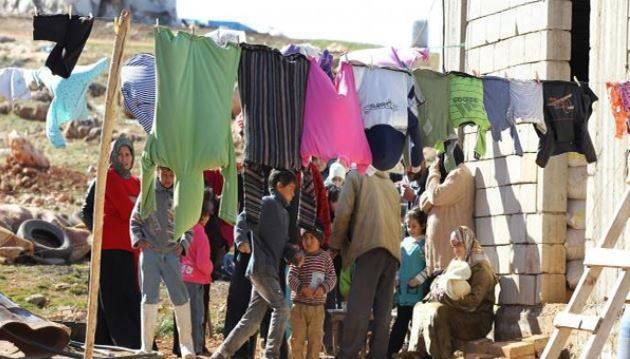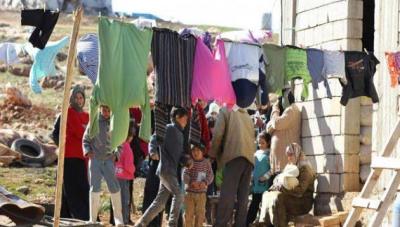Conflicts and natural disasters forced a person to flee within their country every second last year, raising the number of internally displaced persons to a record level, according to two non-governmental organizations announced on Thursday. The increase occurred despite strict movement restrictions imposed by authorities worldwide to prevent the spread of COVID-19, which observers had expected would reduce the number of displaced individuals last year.
However, 2020 also witnessed severe storms, conflicts, and violence that forced 40.5 million people to displace within their countries, according to a joint report released by the Internal Displacement Monitoring Centre and the Norwegian Refugee Council. This figure represents the highest number of additional displaced persons recorded in a decade, bringing the total number of internally displaced individuals worldwide to 55 million, according to the report.
Alexandra Bilak, director of the Internal Displacement Monitoring Centre, told AFP that "the numbers this year were unusually high," noting that the increase in the number of internally displaced persons is "unprecedented." The number of internally displaced individuals now more than doubles that of people who fled across borders as refugees (approximately 26 million). Norwegian Refugee Council Secretary General Jan Egeland stated in a statement, "It is shocking that a person was forced to flee their home within their country every second last year." He continued, "We are failing to protect the most vulnerable people from conflict and disaster."
**Rising Numbers**
Bilak also indicated that it is "especially concerning that such large numbers were recorded against the backdrop of the COVID-19 pandemic." She mentioned that actual numbers might be higher due to the restrictions hindering data collection and the reality that "fewer people sought shelter in emergency accommodations due to fear of virus infection." The pandemic has also exacerbated social and economic conditions for the displaced, warning that "these numbers may rise further as countries face deeper economic crises."
The report concluded that three-quarters of those who were internally displaced last year were victims of natural disasters, particularly those related to extreme weather events. Powerful hurricanes, seasonal rains, and floods struck vulnerable and densely populated areas in Asia and the Pacific, while the Atlantic hurricane season was "the most active on record," the report stated. It noted, "Extended rainfall seasons across the Middle East and sub-Saharan Africa forced millions to leave their homes."
**Climate Impact**
Experts state that climate change increases the frequency and intensity of extreme weather events. Bilak remarked, "We can only expect that, given the future implications of climate change, these disasters will become more frequent and severe, leading to an increase in internally displaced numbers." The report indicated that about ten million of the new displaced individuals last year fled due to conflicts and violence. It added that the escalating violence and the growing presence of extremist groups in Ethiopia, Mozambique, and Burkina Faso exacerbated the fastest-growing displacement crises in the world last year. Conflicts in regions such as Syria, Afghanistan, and the Democratic Republic of Congo continued to force large numbers of people to flee.
Unlike disaster-induced displacement, which typically does not last long as populations return to rebuild their damaged or destroyed homes immediately after storms, displacement caused by conflicts can continue for years, according to the report. The report also warned that the combination of conflict and natural disasters exacerbates the problem, as 95% of recorded displacements last year occurred in countries prone to the impacts of climate change. It reported that "climate change and the overexploitation of natural resources may exacerbate instability and conflict, which in turn may lead to displacement."




